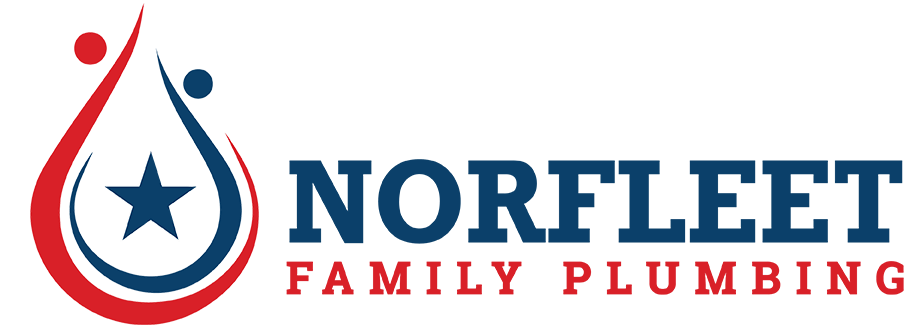How to Safeguard a Home: Fixing Gas Leaks the Right Way
Fixing gas leaks the right way means following expert protocols, relying on trained professionals, and maintaining a home’s gas system with proper care.
Gas leaks create a silent threat that no homeowner wants to face. When left unchecked, escaping gas increases the risk of fire, health issues, and structural damage. Quick action paired with professional repair services restores safety and prevents long-term problems. Fixing gas leaks the right way means following expert protocols, relying on trained professionals, and maintaining a home’s gas system with proper care.
Recognizing the Warning Signs
Gas leaks rarely make a dramatic entrance, but the warning signs become obvious once the senses kick in. The smell of rotten eggs is the most recognizable indicator, thanks to an additive that makes natural gas easier to detect. A faint hissing sound near gas lines or appliances suggests gas is escaping, even when there’s no visible damage. Dead or dying plants in a specific area signal an underground leak affecting soil quality.
Inside the home, physical symptoms such as dizziness, headaches, and difficulty breathing appear when gas builds up in enclosed spaces. If unexplained fatigue or nausea develops while indoors but fades after stepping outside, a leak may be the culprit. Acting immediately prevents exposure from worsening.
Shutting Off the Gas Supply
Stopping the flow of gas remains the first priority when a leak is suspected. Every home with natural gas service has a main shut-off valve located near the meter. Turning the valve perpendicular to the pipe cuts off the gas supply, reducing further risk. Individual appliances also have shut-off valves, offering an option to isolate the leak if the source is obvious.
Knowing the location of these valves before an emergency makes all the difference. A quick response keeps gas from spreading and gives professionals a safer environment to assess and repair the issue.
Ventilating the Space
Allowing fresh air into the home clears lingering gas buildup and reduces the risk of ignition. Opening windows and doors immediately disperses trapped fumes, creating a safer environment. Natural ventilation remains the safest option, as electrical fans or HVAC systems pose a spark risk.
For outdoor leaks, keeping a safe distance from the affected area guarantees exposure stays minimal. Avoiding confined spaces and staying in well-ventilated areas while waiting for professional help protects everyone involved.
Avoiding Flames and Electrical Sparks
Gas leaks turn everyday activities into fire hazards. A single spark from a light switch, appliance, or static electricity ignites built-up gas. Open flames, including candles, matches, and gas stoves, should be avoided entirely. Even a simple action like starting a car in an attached garage adds unnecessary risk.
Until the leak is repaired, keeping all ignition sources away from the home remains a top priority. Allowing professionals to confirm safety before resuming normal activities prevents dangerous situations.
Calling a Professional for Gas Leak Repair
Gas leaks require expert handling. A trained technician assesses the situation, locates the source of the leak, and repairs it using industry-approved methods. Unlike temporary DIY fixes, professional repairs address the underlying issue, preventing future leaks from developing.
Modern detection tools help pinpoint even the smallest leaks. Acoustic listening devices pick up subtle gas movements, while electronic sensors detect changes in air composition. For underground leaks, infrared imaging provides a clear view of gas escaping below the surface. Advanced techniques allow repairs to focus only on the affected areas, reducing unnecessary disruption to the home.
Replacing Worn or Damaged Gas Lines
Aging pipes and worn-out fittings contribute to leaks over time. Corrosion, temperature fluctuations, and daily wear weaken gas lines, making them more susceptible to failure. Regular inspections identify deteriorating components before they cause serious problems.
Replacing old pipes with durable, high-quality materials strengthens the entire system. Professional technicians install and seal new gas lines with precision, guaranteeing secure connections that stand the test of time. Preventative maintenance reduces the likelihood of unexpected leaks while improving the efficiency of gas-powered appliances.
Routine Inspections for Long-Term Safety
Gas lines and appliances benefit from regular check-ups, just like any other household system. Scheduling annual inspections with a professional technician helps catch minor issues before they escalate. Checking for loose connections, faulty valves, and deteriorating seals keeps everything running smoothly.
Gas-powered appliances, including stoves, water heaters, and furnaces, require maintenance to prevent leaks at their connection points. Cleaning burners, inspecting ventilation systems, and verifying proper function all contribute to a safer home environment.
Installing Gas Leak Detectors
Adding an extra layer of protection with gas leak detectors improves early detection. These devices monitor air quality and sound an alarm when gas levels rise to unsafe levels. Unlike the human nose, which adapts to smells over time, detectors provide continuous monitoring without fail.
Placing detectors near gas-powered appliances, basements, and sleeping areas offers the best coverage. A well-maintained detector alerts homeowners to a problem before symptoms or other warning signs appear.
Restoring Peace of Mind with Proper Gas Leak Repairs
Fixing a gas leak the right way means taking immediate action, relying on trained professionals, and committing to regular maintenance. A well-maintained gas system keeps homes safe, appliances running efficiently, and energy costs under control. Addressing leaks early prevents major repairs, making proactive care the best defense against unexpected issues.
Gas safety starts with awareness and ends with professional expertise. Keeping a home protected from leaks requires diligence, proper maintenance, and a commitment to safety. When handled correctly, gas-powered systems provide comfort, efficiency, and peace of mind for years to come.
If you need a licensed, bonded, experienced plumber for plumbing installation and service in Chandler, Gilbert, Mesa, Queen Creek, Ahwatukee or San Tan Valley call Norfleet Family Plumbing Heating and Air Today!

